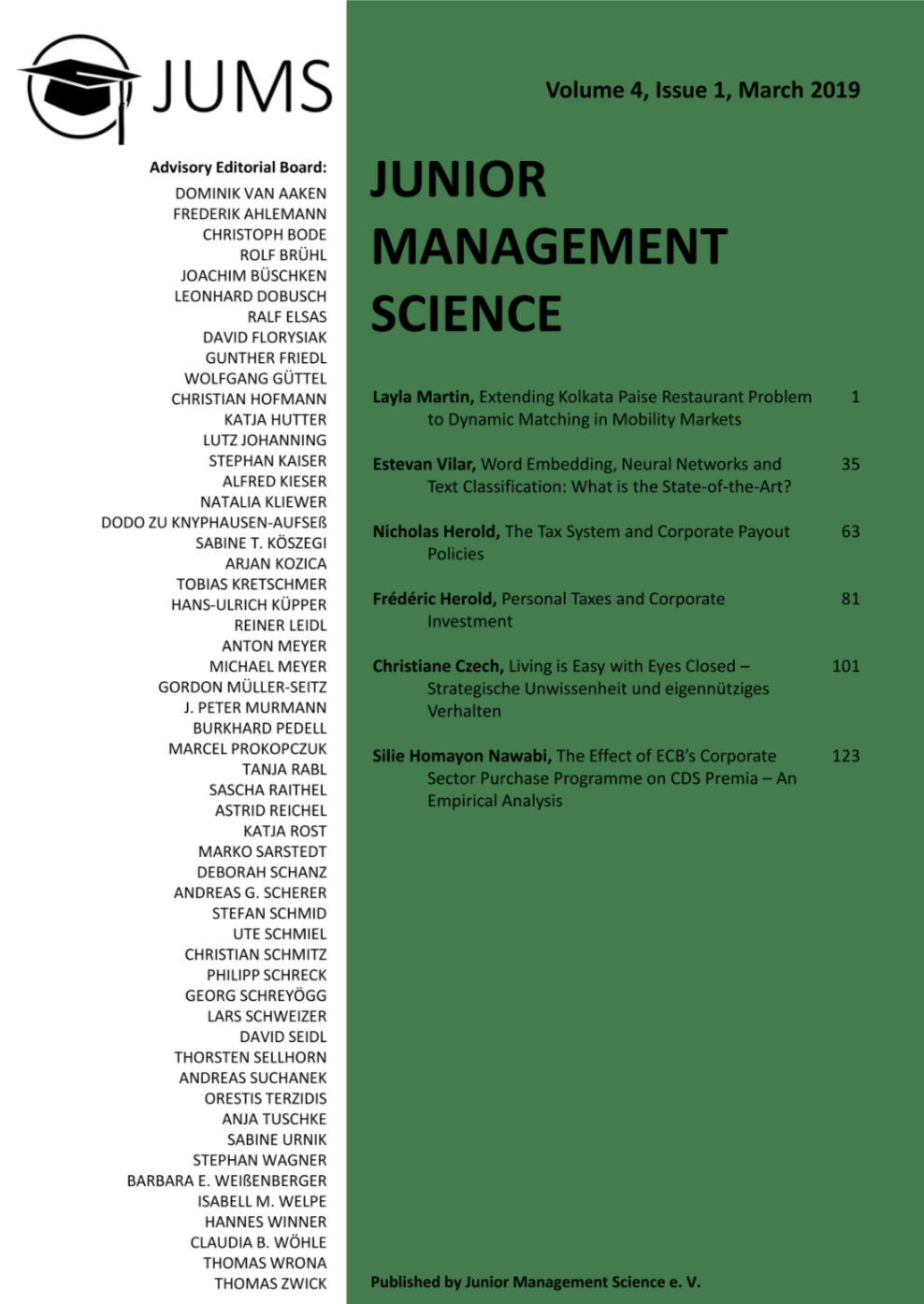Abstract
In response to the intensification of economic crises in the euro area, the European Central Bank (ECB), along with other central banks, has conducted both conventional and unconventional monetary policy. The most recent unconventional measure has been outright asset purchases under the corporate sector purchase programme (CSPP) targeting euro-denominated investment-grade bonds issued by non-financial corporations in the euro area. Using a Difference-in-Differences (DID) approach on a sample of euro-zone data I find that the CSPP initiative has consistently contained credit risk. In contrast, spillover effects to firms not subject to the CSPP policy are limited.
Keywords: quantitative easing; unconventional monetary policy; asset purchase program; credit default swaps; corporate
sector purchase program

